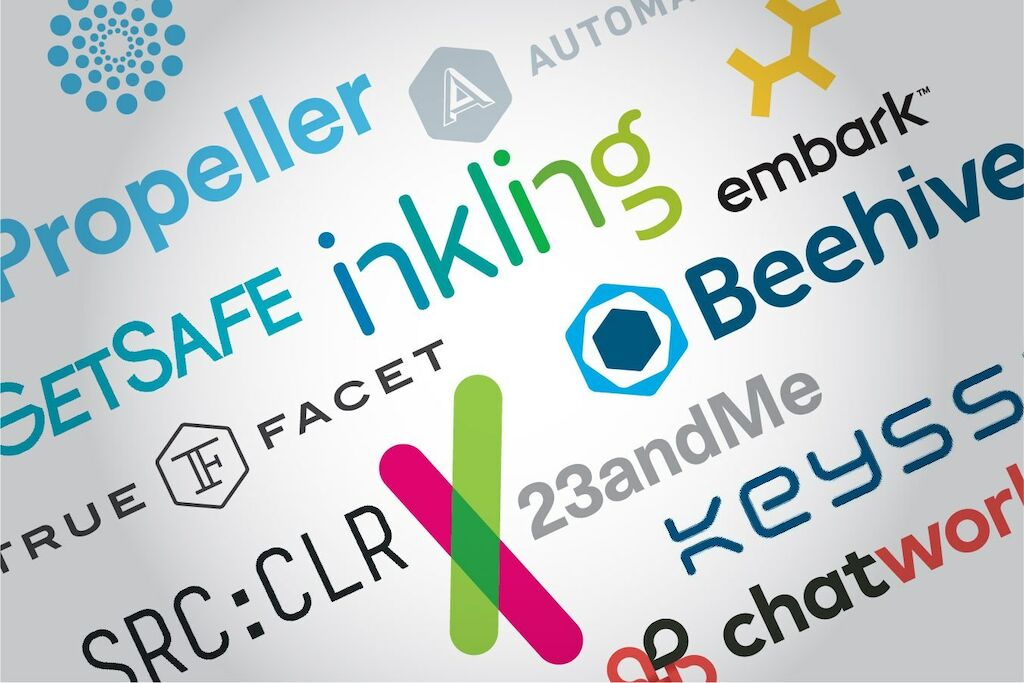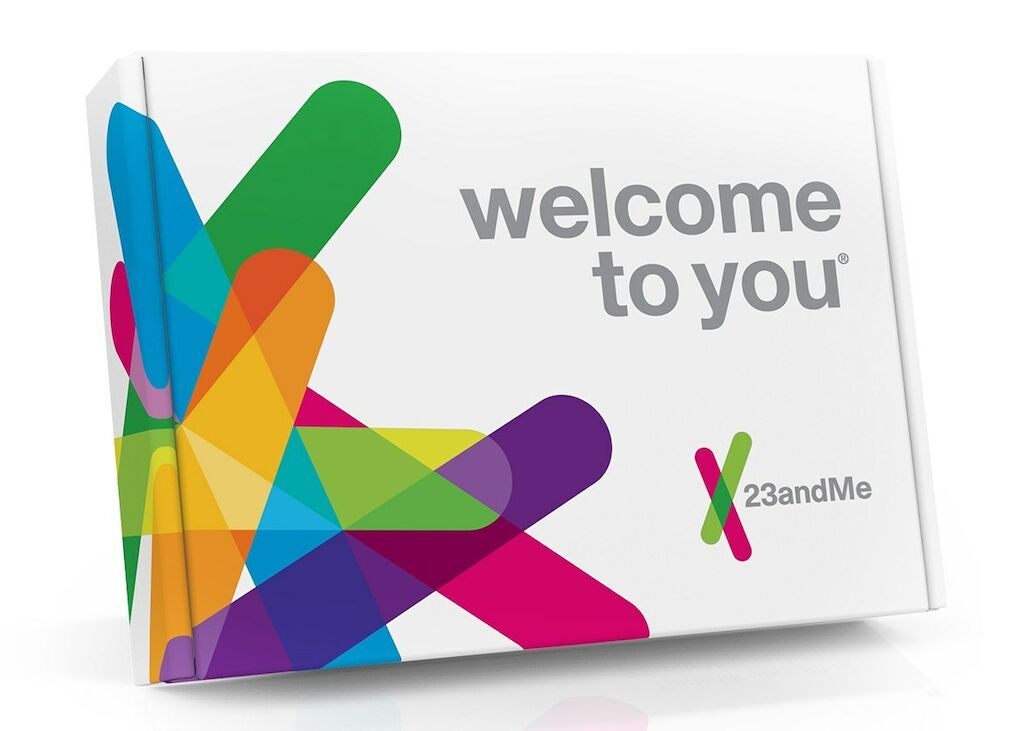HR: Since 23andMe, we’ve worked with a lot of startups. What’s the range? Is it a couple of founders? Is it a large organization that’s already been built?
AG: There are two broad types or scenarios that we find. The first is the really young company that’s just a very small team — maybe just founders at that point, focused on developing their idea for the product or the service. They come to us looking for support and help on how to create a brand that’s going to contribute towards their launch and hopefully their success.
Oftentimes those projects are a little smaller in scale and their funding isn’t as large at that point, but we try to work with them to develop a program that’s in their budget. It’s usually a tight time frame to get them the thinking and the brand basics that they need. We start by working through and prioritizing what is going to have the most impact for them in terms of their brand. That often means us working directly with the founders. Often they don’t have anyone there that’s focused on branding or marketing. It’s a lot of fun for us to create something from scratch and to see it go out into the world with a quick turnaround.
HR: That’s one kind of startup.
AG: The second kind, they’ve been around for several years and have a brand already and have started to get some traction in the market. They’ve gotten more funding, started to build out their team, and come to a point where they realize that perhaps the initial brand that they developed is no longer working for them in some way. Whether it was done quickly or without a whole lot of thought, it doesn’t match who they are as a company or how they have evolved.
Sometimes things change; companies need to pivot. Or there are external forces in the marketplace — competitors or different factors that make them realize they need to take another look at their brand and maybe invest a little bit more time thinking about it. Also, they probably are able to hire somebody who is focused on the marketing and brand side. They are usually the people that drive those projects.
Those projects are more in depth, a little bit more rigor around the process. The timeline is usually a little longer. They usually have more of a runway in terms of what they need to do, and they have a bit more funding, so the scope tends to be larger. On those, we really are focusing on the long-term strategy for the brand as they continue to scale and grow without having to change the brand again in the distant future.
Those are the two typical scenarios that we come across with startups.
HR: What are some of the challenges with these kind of clients?
AG: I think it’s a double-edged sword. It can be a really positive in terms of collaborating, but it can also sometimes be a challenge in terms of making sure that we have the time to go away and think about things that we need to do. Also, with some of the early-stage companies, the founders are so focused on the engineering side or the development side, sometimes there is some education required in terms of the process and the value of our work. I think also just the speed of things in terms of how quickly they need to move in order to get their product and their brand out into the marketplace.
There are some challenges, but I think overall our team enjoys these challenges over some of the others we find with larger clients, where there is a much larger stakeholder team and decisions take a lot longer. With a small startup, the feedback is fast and decisive typically.
HR: If there’s a startup looking at this, what are some of the things they want to keep in mind as they think about their brand and when to reach out to an agency?
AG: I think one thing I would say overall is don’t wait too long. The earlier you start to think about the brand — and when we talk about brand, we don’t just mean the logo. How are you going to differentiate your brand in the marketplace? How do you want to be perceived, and what sort of personality do you want to have? The look and feel and the tone of voice of the brand impact the way that you think about product development or the experience that you have within the products. I think the earlier the better to be considering that.
You only get one chance to launch, and you want to make sure you do it with all the strengths you have. It can be a big challenge later down the line when you realize you need to come back and fix something that you didn’t really focus on in the right way in the beginning. Not only will you have to change a lot of things, you risk confusion with customers.
_Hozy Rossi is creative director of MetaDesign San Francisco.

